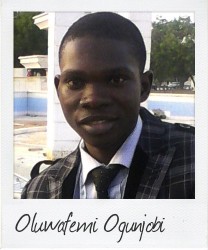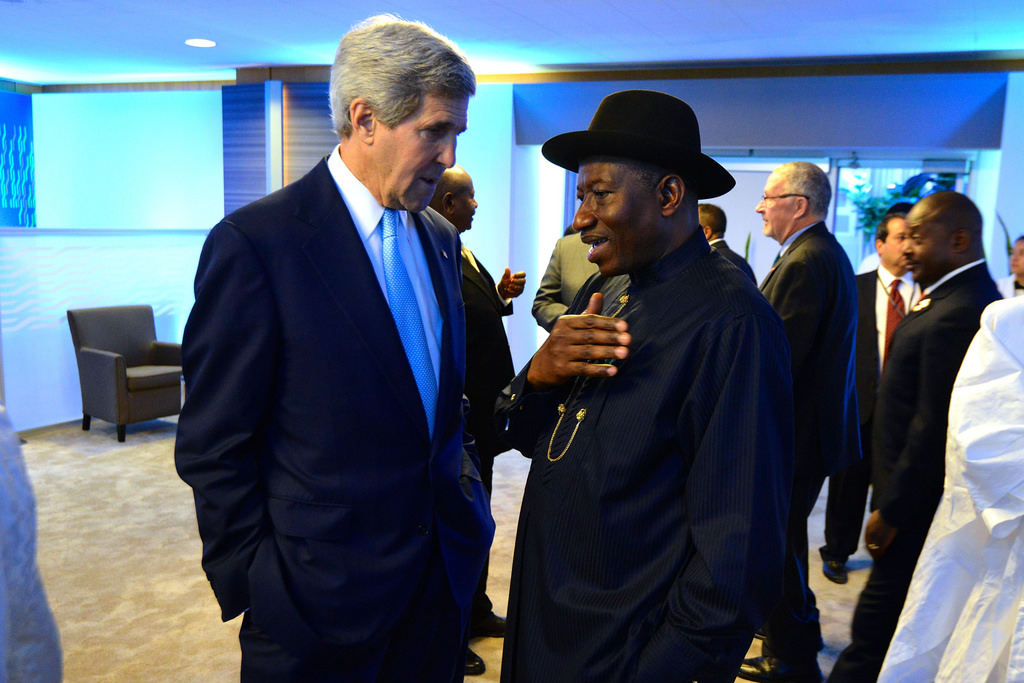“Will Nigerians miss former President Jonathan?”
June 15th, 2015 With a new government elected in Nigeria, Oluwafemi Ogunjobi, 22, a Commonwealth Correspondent from Nigeria, reviews the legacy of former President Goodluck Jonathan.
With a new government elected in Nigeria, Oluwafemi Ogunjobi, 22, a Commonwealth Correspondent from Nigeria, reviews the legacy of former President Goodluck Jonathan.
Every May 29 is Democracy Day in Nigeria. It is a day that commemorates the restoration of democracy in Nigeria. Nigeria faces a change of government as President Goodluck Jonathan relinquishes power to President-elect, Muhammadu Buhari, who defeated him in the March 28 election.
It was the first time a sitting President lost re-election in the nation. For the outgoing President Jonathan, it marks the end of his six-year administration. Jonathan came to power promising to take Nigeria to greater height through his Transformation Agenda. He assumed office following the death of his predecessor, President Umaru Musa Yar’Adua in 2010.
But, did the nation fare well under his administration? Given the hardship in the twilight of his administration, he may be leaving a bad legacy. In the last few weeks, the country has been in darkness; electricity generation dropped to below 2,000 megawatts. Petrol, a commodity which the nation produces in large quantity, is sold far beyond the fixed pump price because of scarcity. Life has become more unbearable for the people.
The Boko Haram menace can never be forgotten in the history of Nigeria, nor during Mr. Jonathan’s regime. The Islamic fundamentalist sect has been responsible for the deaths of scores in the North Eastern region of the country. Although the sect’s insurgency began before Jonathan became President, the sect spread its tentacles and intensified its terrorist activities under his administration, causing the federal government’s declaration of a state of emergency in the troubled states. The sect’s activities have since then crippled the economic activities in those states.
“Isn’t a dead child better than missing a child?”, as the Nigerian proverb says. The abduction of over 200 school girls from Government Secondary School, Chibok, leaves a permanent stain on President Jonathan’s administration. The April 14, 2014, abduction of the Borno schoolgirls was widely seen as a major challenge to his administration, and attracted several interventions from the international community. But, one year later, the girls are yet to be rescued from the Sambisa forest. The parents still hope that their children will return home someday. How soon? No one knows.
As a recent college graduate, President Jonathan’s administration gave me extra months in university. Under his administration, all didn’t go well with the education sector. In 2013, virtually all the levels of Nigeria’s education sector, from basic to higher, witnessed one strike or the other. University, polytechnic and college of education teachers shut down campuses for over 10 months because of non-implementation of the Memorandum of Understanding (MoU) which they signed with the government in 2009.
Apart from the case of incessant strikes, there were other minuses in the nation’s education sector, which in one way or the other may have affected fortunes in the sector in an adverse manner. One such incident was the killing of about 40 students in their sleep in September in Yobe state, as suspected members of the Islamic sect, Boko Haram, opened fire on the dormitories of the state’s College of Agriculture. The incident followed a spate of similar attacks by the insurgents, who have become notorious for attacks on schools and universities, which they regard as a symbol of Western culture; the system the insurgency abhors with passion.
On the other hand, it must also be noted that one of the major developments that shaped the education sector in Nigeria during President Jonathan’s administration was the establishment of 14 new universities across the country.
Mr. Jonathan has been described as a democratic hero by some Nigerians, and by the global community for conceding defeat to General Buhari – which if not done would have ignited national violence. But, with these records, will Nigerians ever miss him?
photo credit: Secretary Kerry Greets Nigeria’s President Jonathan via photopin (license)
…………………………………………………………………………………………………
About me: I am a purpose-driven Nigerian, student, freelance writer, and youth development advocate. I am continuously involved in productive activities that affect human lives, purpose and dignity.
I am passionate about writing. I seek to bring global headliners together through it, and equally to demonstrate how passionate commitment to excellent reporting and storytelling makes a difference in the lives of people everywhere. I also love travelling and playing soccer.
…………………………………………………………………………………………………
Opinions expressed in this article are those of the author and do not necessarily represent the views of the Commonwealth Youth Programme. Articles are published in a spirit of dialogue, respect and understanding. If you disagree, why not submit a response?
To learn more about becoming a Commonwealth Correspondent please visit:
http://www.yourcommonwealth.org/submit-articles/commonwealthcorrespondents/
…………………………………………………………………………………………………




